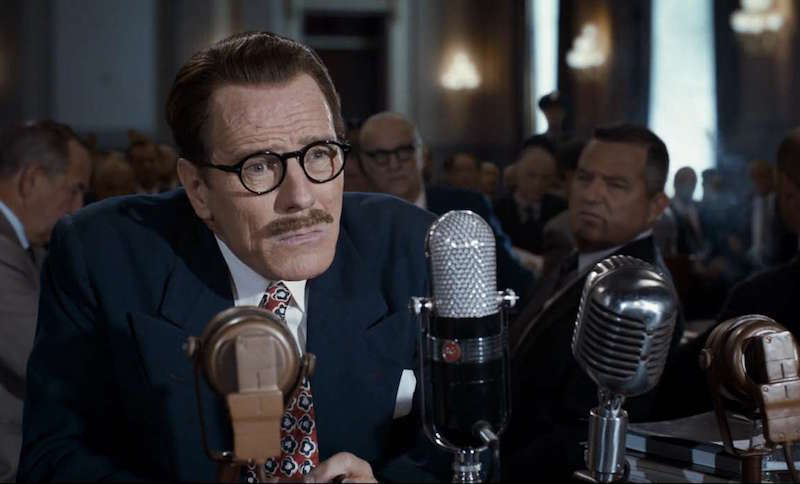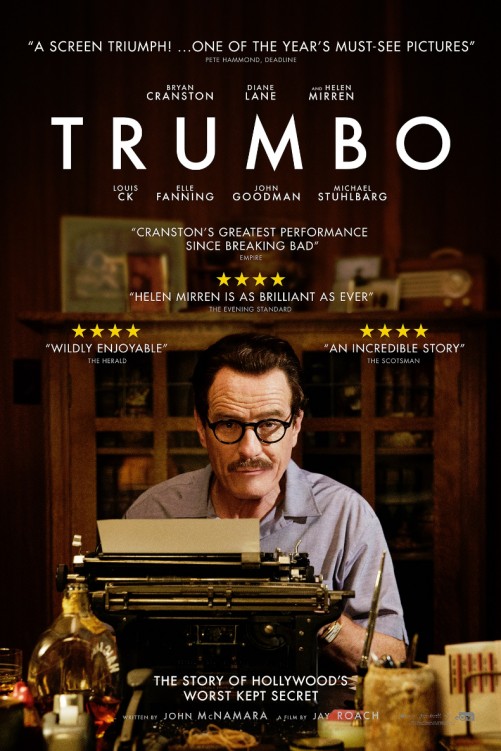Trumbo

Every now and then, Hollywood turns its gaze inwards to narrate its own history, usually glorifying its stars and heroes. On this occasion it tackles a dark moment, in which the freedom of expression of many filmmakers was seriously and openly threatened. In the late 1940s a large number of professionals affiliated with the Communist party were persecuted, and if they refused to inform on others, they were labelled “traitors”. Among those who chose not to collaborate was Dalton Trumbo (here played by Bryan Cranston), one of the highest paid and most prolific screenwriters of his time.
Fierce propaganda sought to demonise and alienate those following “un-American” ideologies. The group of filmmakers who stood for their beliefs, known as the Hollywood 10, were all sent to prison and prevented from resuming work upon their release. After ten months of imprisonment, Trumbo began to write furiously using different aliases, and he soon regained a prominent position in the Hollywood scene, albeit undercover. He went on to win two Academy Awards but these were presented to the colleagues who, with his consent, took credit for his work.
Thematically rich and witty in its dialogues, Trumbo is an interesting and well-developed portrayal of the professional, the man and the persona. It is a vivid and colourful rendering of his flaws and quirks. Rather than delve into political ideologies, it focuses on the strength of Trumbo as an individual, and through him, it subtly criticises the absurdity of a serious and little-discussed chapter of Hollywood’s golden age. The action is measured and the narrative avoids dramatic peaks. Still, it succeeds in reflecting the turbulence of the times.
All supporting roles are strong and Michael Stuhlbarg gives an especially impressive performance as actor Edward G Robinson. Helen Mirren plays the secondary but significant role of Hedda Hopper, the gossip columnist whose indiscretions kickstart the hunting down of “traitors”. Her evil interventions are a nice touch, and they add to the film’s slightly caricaturised vision of the era (which does not, however, detract from its elegance). Diane Lane’s role as Dalton’s wife, Cleo, is understated but it creates the necessary contrast with the eccentric protagonist and helps to further emphasise his peculiarities.
As for Bryan Cranston, he offers an excellent rendition of Dalton Trumbo, earning an Oscar nomination. The validity of his portrayal can be immediately verified as clips of the man himself accompany the closing credits. As well as honouring the story of a talented screenwriter, Trumbo is relevant in the way it presents fear-mongering and the ease with which prejudice can run out of control.
Mersa Auda
Trumbo is released nationwide on 5th February 2016.
Watch the trailer for Trumbo here:




















Facebook
Twitter
Instagram
YouTube
RSS